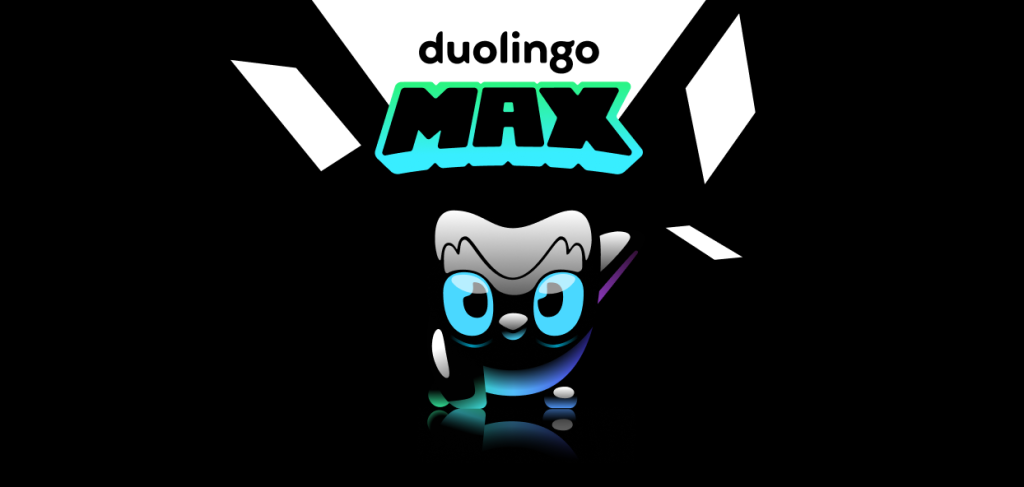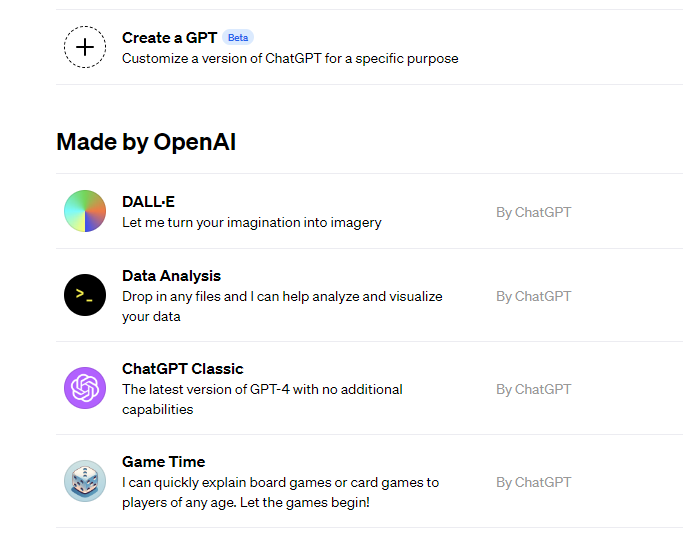Published on: April 26, 2023 Updated on: February 2, 2024
Top 3 Apps for ESL: How AI Revolutionizes Education
Author: Alex Tyndall

The ever-expanding field of AI integration in EdTech has presented a multitude of new opportunities to every level of the education sector. One of those areas is how it can help ESL (English as a Second Language) students thrive, even without complete mastery of the English language. Here, we explore three pieces of technology and investigate how they have helped ESL students.
A New Age Of EdTech
The development of educational technology (EdTech) had already been making impressive strides prior to 2020. However, the sudden disaster of a global pandemic which led to online learning environments and an industrial-scale reliance on technology helped EdTech production enormously.
The global worth of the EdTech market leapt from $18.66bn in 2019 to $123.40bn in 2022. Whilst this rate of growth is predicted to slow as we return to in-person teaching and rely less heavily on technology, the massive ripples it has made throughout the field of education are undeniable.
It has allowed for greater automation of time-consuming administrative tasks, evaluating student progress, and identifying and eliminating plagiarism. But perhaps one of the most intriguing developments in the field of teaching and learning is the enhanced accessibility AI brings for ESL students.
English is something of a lingua franca – a language used commonly by people who do not share a first language. It is the international language of business, trade, medicine, and science, and is spoken by over 1.5 billion people. But less than 500 million speakers are native speakers, meaning over a billion people use English as a secondary language.
Even so, English isn’t the easiest thing in the world to learn. As with most languages, once you get past the basic concepts, you have to deal with inflections, semantics, language-specific idioms, as well as sarcasm or double-meanings. This is where AI technology can make a huge difference, and have ESL students speaking and writing fluently in no time, whilst improving their listening skills.
The ESL AI Trailblazers
The advancements in machine learning technology and the greater integration of AI tools has led to a much wider expanse of opportunities for ESL students across all levels of education. There’s clearly a high demand for access to education – whether that be self-taught or in a classroom environment.
Here are three language learning apps that have proven to help ESL students and ESL teachers time and time again with the power of AI.
1. Duolingo
Duolingo is the largest and most popular language-learning app available. Founded in 2011 by Luis von Ahn, a computer scientist from Carnegie Mellon University, it now has over 570 million users, 60.7 million of which were active monthly in Q4 of 2022.
English remains the most popular language to learn on the app in the vast majority of countries. The varying levels of course difficulty mean that all English language learners, regardless of CEFR level, can begin learning, or boost their new language skills.


Their course creation combines both human and AI generated content in equal measure. This ensures that the areas that can be automated are, such as within the lesson personalization, which uses adaptive learning to cater to a user’s ability. Or speech recognition, which lets users put into verbal practice what they’ve learned on the course and improve their speaking skills.
But there is also a strong element of human development that makes sure what people learn will be relevant, interesting, and fun. This includes the gamification of teaching, such as the use of quizzes and daily challenges. Striking the right balance between the two ensures that people feel independent and confident about their learning process, but supported when necessary.

The main appeal of Duolingo is being able to take things at your own pace. AI facilitates this as it means you’re not dependent on assistance from a human tutor, so services are available immediately, 24/7. Moreover, compatibility as both a mobile app and on a desktop ensures total accessibility for those who wish to learn.
Here are two anonymous reviews from both a native French speaker and a native Spanish speaker, explaining their experiences.
![I have been using Duolingo daily for 2 years. Right now, for me, it's a good revision tool. [...] Duolingo alone isn't enough, obviously, but it's simply the best free app for a beginner to intermediate level](https://topapps.ai/wp-content/uploads/2023/04/image-148.png)
![Spanish Duolingo Review I love using this app, I've really made more progress and the way they explain is easier for me […] Funny, the sounds make me stay alert and that is something that is not easy to do. I hope with this app I can learn English more easily at my own pace. Brilliant!](https://topapps.ai/wp-content/uploads/2023/04/image-150.png)
Recently, Duolingo announced Duolingo Max, which is powered by OpenAI’s GPT-4 – the same company responsible for ChatGPT. This will allow users to access more features, such as explaining why they made an error, or role-playing with an AI chatbot to gain more real-life conversational skills.
Whilst this system isn’t entirely available yet, and can currently only support French and Spanish languages, it shows great potential in helping all users improve their learning experience.

2. Wordtune
Wordtune arrived on the scene in 2020, launched by the Israeli startup group AI21 Labs. Their mission was to develop software that not only allowed its users to improve their writing skills but would improve their overall knowledge of the English language.
Acting as a direct competitor to OpenAI, AI21 Labs trained its own Natural Learning Processing (NLP) algorithms to have a deeper understanding of semantics and context-based clues. This, in turn, creates more natural-sounding generative text that can be used by both native English speakers and ESL learners alike.

As of 2023, their free browser extension helps 600,000 people every day, and has been featured in an academic tech review for Sage Journals.
Wordtune behaves like a mixture of both Grammarly and ChatGPT, offering some of the most advanced, real-time suggestions available on any AI platform. Whilst it cannot teach English, it can facilitate the learning done both inside and outside of educational institutions. It removes a language barrier that may be a source of grief to many students when they need to demonstrate advanced critical thinking and succinctly express their thoughts in a paper or assignment.
One key feature is their ability to translate whole or partial sections of a sentence. Unlike Google Translate, known for swapping a sentence word-for-word, often with errors or at the risk of losing the original meaning, Wordtune offers a variety of translation suggestions and synonymous, semantic options. This makes the language learning process much more natural.

This has proven to be helpful to many ESL speakers, as it allows them to be far more flexible with how they write, and it fills in any gaps in their learning:
This app is a must-have for people for whom English is their second or third language. You will be able to communicate much more clearly and easily.
– Pavel Zilberkant
English is my second language and Wordtune had helped a lot! I have tried similar resources but honestly this is the best!
– Angela Cardona
My English is very mediocre. Wordtune helps my writing look much better and much more professional. I used to have Grammarly but this is way better!
– Allon Korem
The current compatible languages are Spanish, Mandarin, Arabic, Hindi, Korean, Hebrew, Russian, German, French and Portuguese. Wordtune also offers a 30% discount for people in higher education, with a valid .edu email address, or NGOs.
3. Upcopy.ai
Upcopy.ai is a recent contender, launched in December 2022, but already it has been featured in newspapers around the globe for its application as a comprehensive, insightful AI system.
Their parent company, Citispotter, is a Cambridge-based start-up primarily involved in deep tech. Their time in the industry has been punctuated by a quick rise to success, despite only being founded in 2019. In 2020, they won the Grand Prize Equality Track at Oslo Innovation Week. They have also received funding from a number of UK universities including Essex, Cranfield, and Cambridge.
At the beginning of March 2023, Citispotter signed an MOU (Memorandum of understanding) with the Uttar Pradesh Government in India to encourage the enrollment of Upcopy.ai within the state’s universities.
The two official languages of India are Hindi, primarily, and English. However, research has shown that there are large class, regional, and educational barriers which prevent the vast majority of the Indian population from learning English if they wish to. Despite this inaccessibility, English comprehension is considered to be a vitally important skill, and is taught in schools all across the country.

The acquisition and integration of Upcopy.ai is designed to help with student learning by targeting many different aspects that English learners may be struggling with. Some of the key features include:
- Emotion and tone detection
- A personal dictionary
- Templates such as those for essays, resumes, emails, or cover letters
- Grammar and spelling suggestions
- Definitions and thesaurus feature which lets ESL students learn new words such as synonyms and antonyms to improve their overall vocabulary
Take this testimonial from Dr Jan Storgårds, director of Cambridge Academy of Digital Games and Innovation.
“I run a course for video game development for 60K students from all over the world who are non-native English speakers. Upcopy is a solution that helps my students to check not just grammar but to see the tone of voice and emotions to see how they are embedded in the written text such as their essays as a part of the studies.”
Conclusion
Greater accessibility of learning platforms only benefits a population. Education is a fundamental aspect of life, whether that be learning to walk, to speak, or to write. These three pieces of AI technology positively assist the development of language acquisition and comprehension in ESL students, without the need for traditional teaching methods.
Learning an entirely new language to a conversational degree, let alone an academic one, is already a huge feat. AI can support existing knowledge and provide opportunities to increase it in your own time.
EdTech also helps ESL teachers as it means they no longer have to work by themselves to develop lesson plans or single-handedly accommodate a student’s needs. This is particularly useful for larger courses, where there just isn’t time to talk in enough detail to everyone who needs help.
With an ever-expanding market for EdTech and AI services, we will hopefully be able to see greater access to languages and cultures, and a more global understanding of the different words that help bring us together.
Are you interested in the developments of AI EdTech and the stories people have to tell? Keep in touch with Top Apps for more information.
Alex Tyndall
With a passion for exploring the latest apps and software, she brings a wealth of knowledge to her role as a professional writer at TopApps.ai.
Recent Articles

Artificial Intelligence (AI) is everywhere, but for many, it remains a mystery. What exactly is AI, and how does it impact our daily...
Read More
Interested in sharpening your AI knowledge base? We have all the best advice for staying ahead of the latest AI innovations and trends...
Read More
Learn how OpenAI's GPT Builder transforms coding, content creation, and more. Uncover its user-friendly side and dive into a future of AI accessibility...
Read More